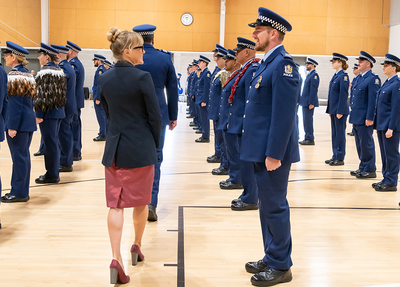The Porn Series – Part Three: Consent
Kate on Nov. 30, 2021
What was sex education like for you at school? Was a condom and a banana involved? As a person who works in this area I can reassure you that things have got a lot better, we’re now all about peach emojis.
This may not seem like much of a progression but rangatahi are now learning much more about healthy relationships and consent than we did at school. And although our teenage years may seem like a long time ago (thank goodness the teenage angst is over!) I do feel that some of us could also benefit from this kōrero so I thought I’d write this.
I am a former teacher who went on to work in primary prevention of sexual violence. In my role at Te Mana Whakaatu the Classification Office I share what we have learned from our three years of research into pornography with whānau.
When we talk about pornography one of the more interesting discussions is how it doesn’t show consent. As touched on in previous blogs porn is normalising sexual behaviours not only for rangatahi but also for adults. Without open communication people are reenacting roles and scripts that exist in porn. Men play the dominant role, they know what they are doing and how to pleasure their partner without asking what they enjoy. Women are generally submissive, they are expected to enjoy everything that happens to them and enjoy it so much that every touch leads to a phenomenal orgasm/s even if the sexual act might hurt or feel degrading.
And consent isn’t really a thing in porn where no means yes. This was supported by our NZ Youth and Porn research where 2000 rangatahi were interviewed and 72% stated that they had seen non-consensual activity in the porn they had viewed. Consent in porn is implicit, something that’s often described by viewers as happening off screen if at all. If we are using porn as a template for sex (and many people are) it means we are making assumptions about pleasure and ultimately about consent, which can be dangerous.
So let’s get into it - what is consent?
It’s a full yes, freely given, informed – at every point we know what we are consenting to, something that can be withdrawn at any time and it needs to be enthusiastic. This doesn’t mean it has to be without nerves. No matter how old we are, nerves are really common but as I tell rangatahi if you feel scared at any point you should stop, sex isn’t right for you right now.
At its heart consent is really sexy. It’s about ensuring that everyone involved in the sexual activity is having a good time. The key is communication. Using language like “Are you enjoying this?” “Do you want me to keep going” helps us to connect with our partner, acknowledges that no two people have the same needs wants and desires and that we care about the other person’s pleasure. And that’s what sex and any intimacy is about, connection and pleasure.
Sex is a physical activity and in turn gaining consent is about reading body language. Someone can say yes but not mean it. We read this in their tone of voice but also their actions. Are they pulling us closer, giving us sexy eye contact, taking off their clothes and moaning with anticipation or heck, maybe even joy depending on how attuned you are to their body. Or are they pulling away, covering their body, were they moaning and now they have gone silent?
These are the signs we should be reading throughout the sexual experience not just at the beginning. We all have the right to withdraw consent at any time and maybe it felt good to start with and for whatever reason we become unsure that we want to continue. We need to feel comfortable to be able to stop and a part of this is knowing that our partner will check in to see if we are ok and having a good time throughout intimate moments whether we have had sex with them once or one hundred times.
For this to happen we need to start talking and that can be daunting when we haven’t had sexuality education that includes consent education beyond “no means no.” We might also be worried about looking stupid in front of a new partner what if we “kill the mood” by starting the conversation before we have sex? Perhaps it’s better just to go with the flow and cross our fingers that it goes well and if we have sex again that’s when we can start talking about consent and pleasure.
The reality is that leaving consent conversations until after the fact can lead to sexual experiences that are less fulfilling and potentially unsafe or unlawful. What’s the worst that can happen if you start the conversation and it falls flat? You can be embarrassed sure, and that embarrassment might stay with you a few hours or even days but on the other hand if you don’t have the conversation and consent is misinterpreted harm can be caused and that will stay with you and your sexual partner a lot longer and perhaps be something that never leaves impacting all future experiences.
And of course consent isn’t done and dusted after having sex with someone. We need to check in as relationships progress. Consent shouldn’t be automatically expected because there’s an ongoing relationship. Are you and your partner talking? Asking what does consent look like for us can help to initiate open and honest conversations. Communicating needs, wants and desires is a skill but it’s one worth developing.
Subscribe to our blog
Stay up to date with the Classification Office blog.


